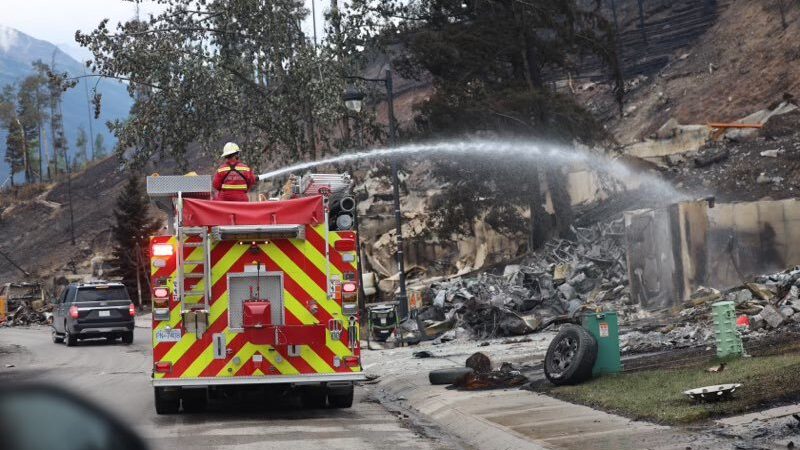Alberta has highest drug poisonings in month, recovery experts worry for province’s model
Posted Jun 27, 2023 7:31 pm.
Last Updated Jun 27, 2023 7:32 pm.
Those in the recovery field say Alberta’s method of battling drug poisoning is failing due to opioid-related deaths reaching an all-time high in April.
The latest provincial data released Monday shows 179 people died from drug poisoning in April, the highest number in a month, equalling six people a day or one person dying every four hours.
Calgary and Edmonton made up almost two-thirds of all deaths that month, with 76 from Calgary and 47 from Edmonton.
The United Conservative Party campaigned on an addiction recovery platform, which included the Compassionate Care Act, a controversial involuntary treatment program which would be the first of its kind in Canada.
It hasn’t been tabled, but Earl Thiessen, executive director of Oxford House, a place for “people in recovery from addictions, a supportive program and safe home to achieve a productive, rewarding, clean, sober life,” say even people from outside the province are asking about the act.
“I have people calling me, parents calling me, saying when can I use the Compassionate Care Act? So that is going through,” Thiessen told CityNews.
“There’s so much resistance to that because people don’t understand the definition of that.”
Related Stories:
-
Calgary lost 76 people to drug poisoning in April, the worst month on record
-
Concerns raised over proposed Alberta involuntary addictions treatment legislation
Mental Health and Addiction Minister Dan Williams said Tuesday it is clear from the data that more needs to be done to address the addiction crisis.
“Investing in recovery is not a choice that we make, but it is our moral obligation to allow for better futures for those suffering today,” Williams said in a statement.
The minister said the UCP has funded services such as naloxone distribution, sterile supplies and drug consumption sites.
Williams said that the government would focus on addressing illicit drug trafficking and build 11 new recovery communities, including those in direct partnership with First Nations.
He also said the government recognized the devastating losses after the data was released.
“As Alberta’s government, we recognize the devastating losses felt by families and communities as a result of addiction, drug abuse and illicit trafficking. The most recent drug fatality data confirms why addressing drug use and illicit trafficking must be top of mind, and my heart goes out to all those who have lost a loved one,” he said.
NDP calls out UCP for hiding data
Meanwhile, Alberta’s Opposition NDP is accusing Premier Danielle Smith of concealing the latest data on opioid-related deaths until after last month’s provincial election.
NDP legislature member David Shepherd says Smith stood on a podium and claimed her UCP government’s model was working.
He also says the UCP hid the truth for the sake of their ideological policies, as he demanded transparency and a focus on harm reduction.
However, Smith’s office denied the claims.
The premier’s press secretary, Sam Blackett, says Smith was briefed about the data after the May 29 vote.
Further down the statement, Williams’ press secretary, Hunter Baril, noted that monthly mortality data have about a two-month lag time and can “sometimes be longer,” along with being briefed after being sworn into office on June 9.
“The minister was first briefed on the most recent fatality data shortly after being sworn in, and it was immediately scheduled for release,” Baril said.
Read More: Alberta not planning to decriminalize illicit drugs: province
Meanwhile, the NDP says the UCP have boasted about their successful addictions treatment plan, but argues overdose death numbers say the opposite, suggesting the province could look at more messaging when they assume a drug supply is tainted.
“That would help organizations and folks on the ground in the community provide that warning to individuals and potentially save lives,” Shepard told reporters.
“And yes, that information should be available and should be made available by the government.”
Theissen agrees.
“I think a big part of it is educating the people out there that what they think they’re using isn’t always what they’re using,” he said.
“People are gambling with their lives, and they’re coming up short.”
Theissen says access to information, especially recovery options, is essential.
“Have a table at the front of that centre. You don’t need to be preaching recovery, but say, ‘Here’s a couple of pamphlets. We have a pre-treatment program here, we have free treatment for a year here,'” he explained.
“‘Just throw them in your backpack. When you’re ready, you give us a call. That’s all you have to do.'”
Premiers discuss recovery treatment programs
Smith, who was at the western premiers meeting in Whistler, B.C., said all the premiers have some programs in place to address addiction and mental-health treatment.
“In Alberta, we’ve got a recovery-oriented system of care that forms the basis for how we address mental health and addiction issues.
“But each of the premiers knows that there are two sides to this. Those who are the victims of the disease and the victims of those peddling these poisonous opioids, and those who are on the crime side (of it),” she said.
Benjamin Perrin, a law professor at the University of British Columbia, said the policy on cracking down on drug trafficking has been discredited.
He said a study published earlier this month in the American Journal of Public Health shows that increased policing enforcement on drug trafficking increases the risk of overdose events.
Perrin said cracking down on trafficking destabilizes the drug supply, making space for newer organized crime groups trying to fill the gap for those still looking for drugs.
“There is no concern for quality control for those working in organized crimes,” he said.
Perrin said the Alberta government has opposed safer supply to substitute the unregulated, toxic drugs that are the primary cause of opioid-related deaths.
“They’ve opposed providing people with drugs of known contents and potency to replace toxic drugs, even though there’s evidence that that approach does save lives,” he said.
-With files from Lauryn Heintz








